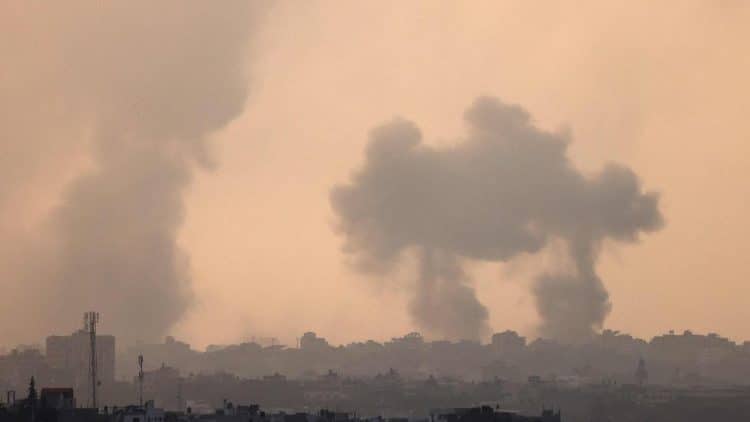The extremely serious situation in the Middle East has, unsurprisingly, stirred the world because of the possible repercussions it could have in other geographical areas, or at the global level.
There are comments and opinions in the media to suit all tastes. Obviously, I do not read, watch or listen to all the media; it is impossible. I say this because I don’t know if anyone has ever analysed the situation with a historical perspective. I suppose they have, but I haven’t heard it.
The Arab-Israeli conflict has not arisen now, it is more than a century old, we could fix the beginning of the conflict in the year 1896, when the World Zionist Organisation, founded by Theodor Herzl, in its first world congress “called for the establishment of a home for the Jewish people in Palestine guaranteed by public law”.
In the wake of this event began the migration of Jews, scattered throughout the world, to Palestine with the aim of creating and establishing their homeland there. Initially, this migration took place very slowly. It was after the First World War, when England and France divided the Ottoman Empire, that the arrival of Jews to these lands increased significantly.
The increasing presence of Jews settling in the area provoked a reaction on the part of the inhabitants, who felt invaded by a people who did not simply want to settle there, but wanted to create a new country where there were already residents.
This is the situation that has led to the successive wars between Arabs and Israelis.
On 29 November 1947, Resolution 181 of the United Nations General Assembly established the partition of Palestine into a Jewish state and an Arab state. The Jewish State is allocated 14,000 square kilometres and the Arab State 11,500 square kilometres.
The Arabs do not accept being expelled from some of the territories they have inhabited for centuries, nor do they accept being allocated less land than the Jews.
On 15 May 1948, the same day as the end of the British Mandate of Palestine, the State of Israel was unilaterally proclaimed. Two days later, the first Arab-Israeli war began. Since then, wars and conflicts have followed one after the other without resolution. Israel has won every war.
In my opinion, it is not possible to understand this conflict without knowing even a little of the historical background.
In the current situation, I distinguish three groups within the Arab world:
1. Hamas. It is a pure and simple terrorist group and, as such, must be fought and condemned.
2. Islamic Jihad. The same applies to Hamas
3. The Palestinian people who want to live in peace and therefore do not feel represented by either Hamas or Jihad.
Israel has the best intelligence service in the world, in fact it sells intelligence to many countries. I am sure it knows what needs to be done to end Hamas. Let it do it and not make the Palestinian population pay for terrorist attacks it did not commit.
There is one sign of Palestinian subservience to Israel. Israel has the key to Gaza’s water and electricity.
Of course, I condemn Hamas’s terrorist attacks in the strongest possible terms, but that does not justify what is being done to the Palestinians in Gaza. I am not appealing to international rules on war, which there are, I am appealing to a sense of respect for people’s dignity and the common good.
I want to make it clear that my position is not at all ideological, it is moral; I defend the dignity of the individual, I care little about political ideas. Having said that, I make it abundantly clear that I am not aligned with any political tendency on this issue.
A conflict that has lasted for so many years has fuelled hatred and bitterness on both sides, which makes it very difficult to reach an agreed solution. Business as usual means continuing the conflict, wars and terrorism indefinitely. I am aware that trying to negotiate peace is practically impossible, but we have to try. We may be talking about negotiations that will take a long time, but it is worth it because there is no other way.
Of course, this cannot be solved by recognising two states. It is part of the solution, but the issue is very deep. International bodies should mediate with the utmost objectivity, which has not been the case so far.
We can always pray and ask the Lord to enlighten them.
José Ignacio Echegaray, contributor to Asociación Enraizados










